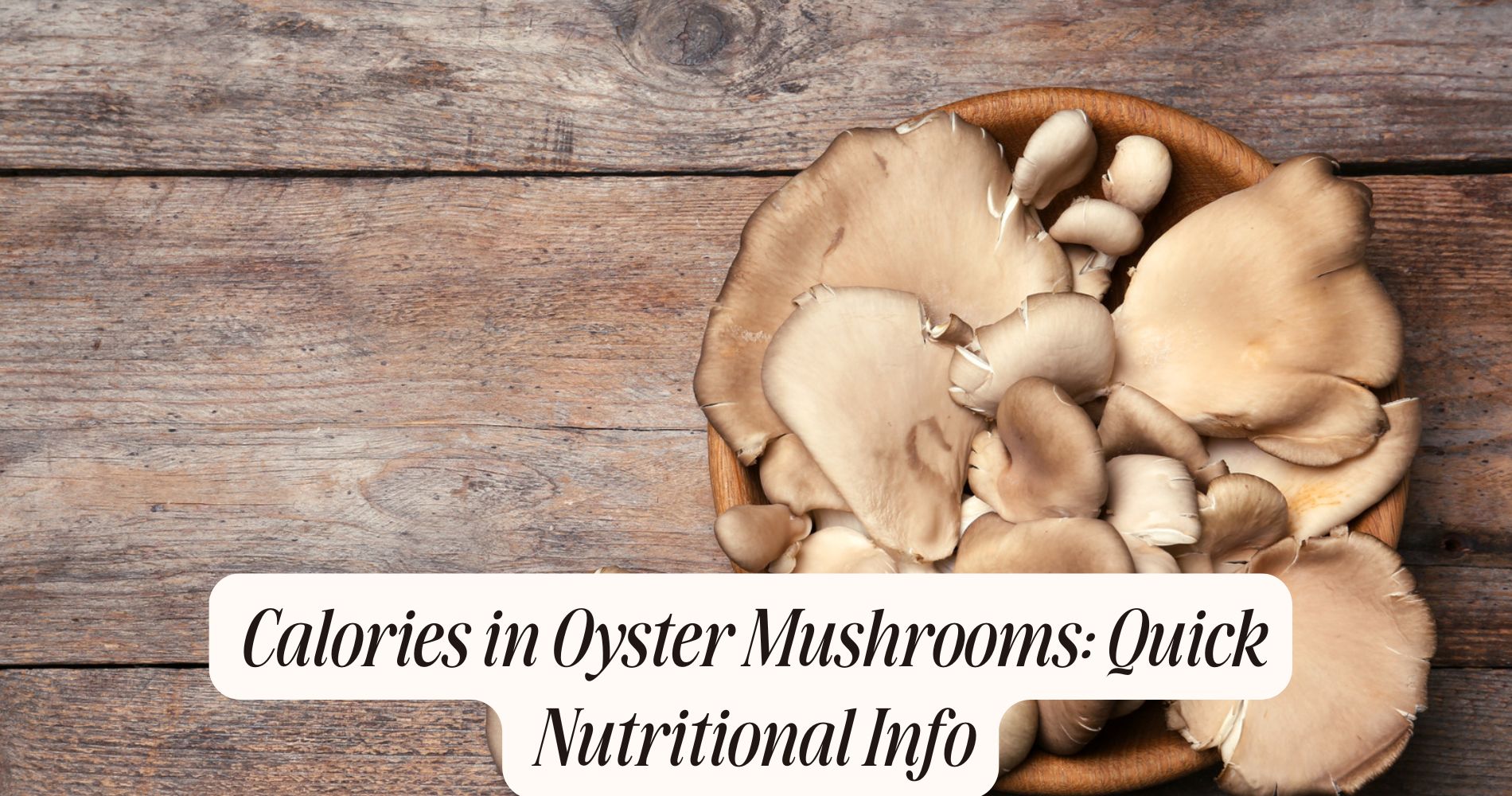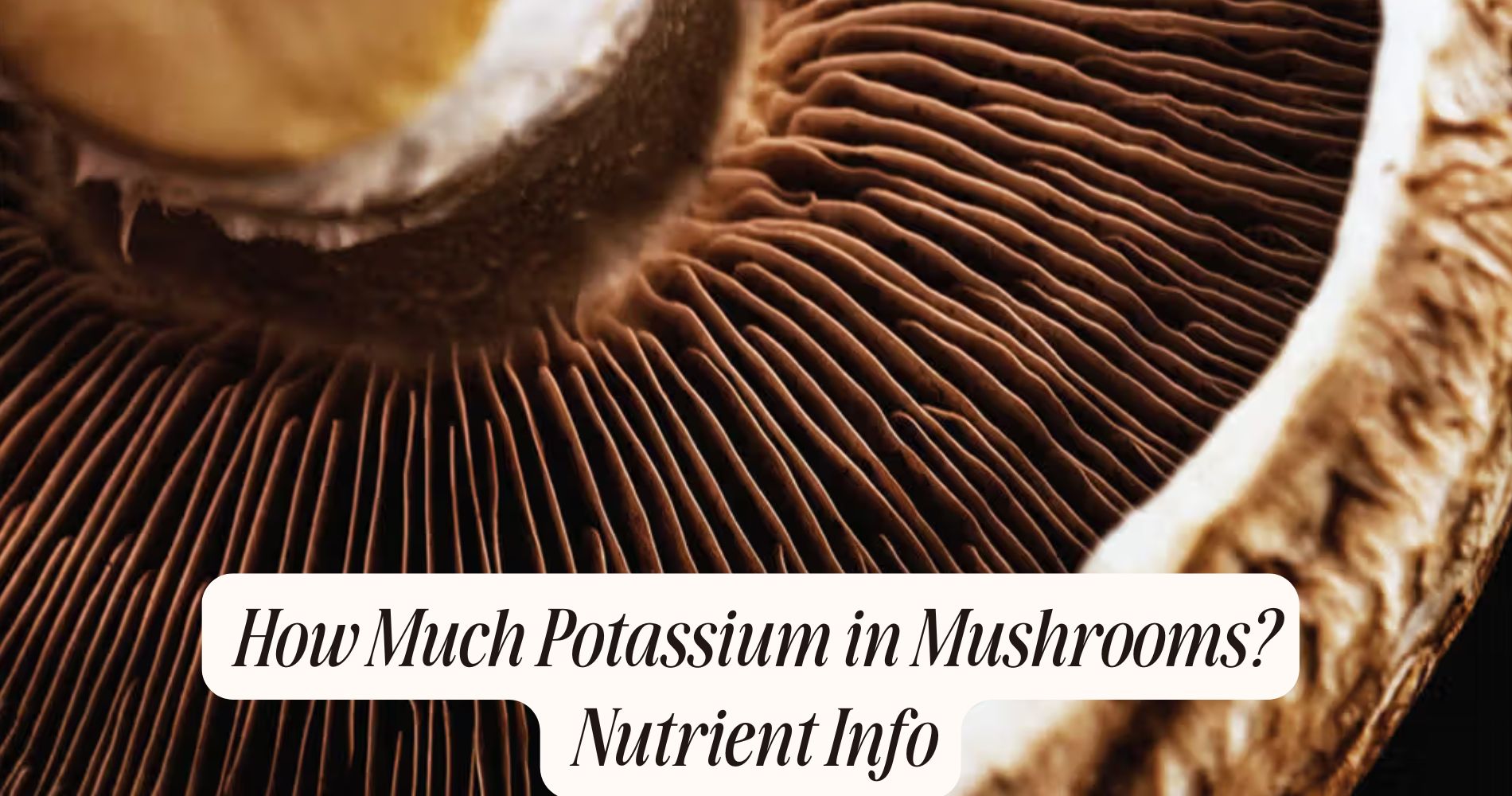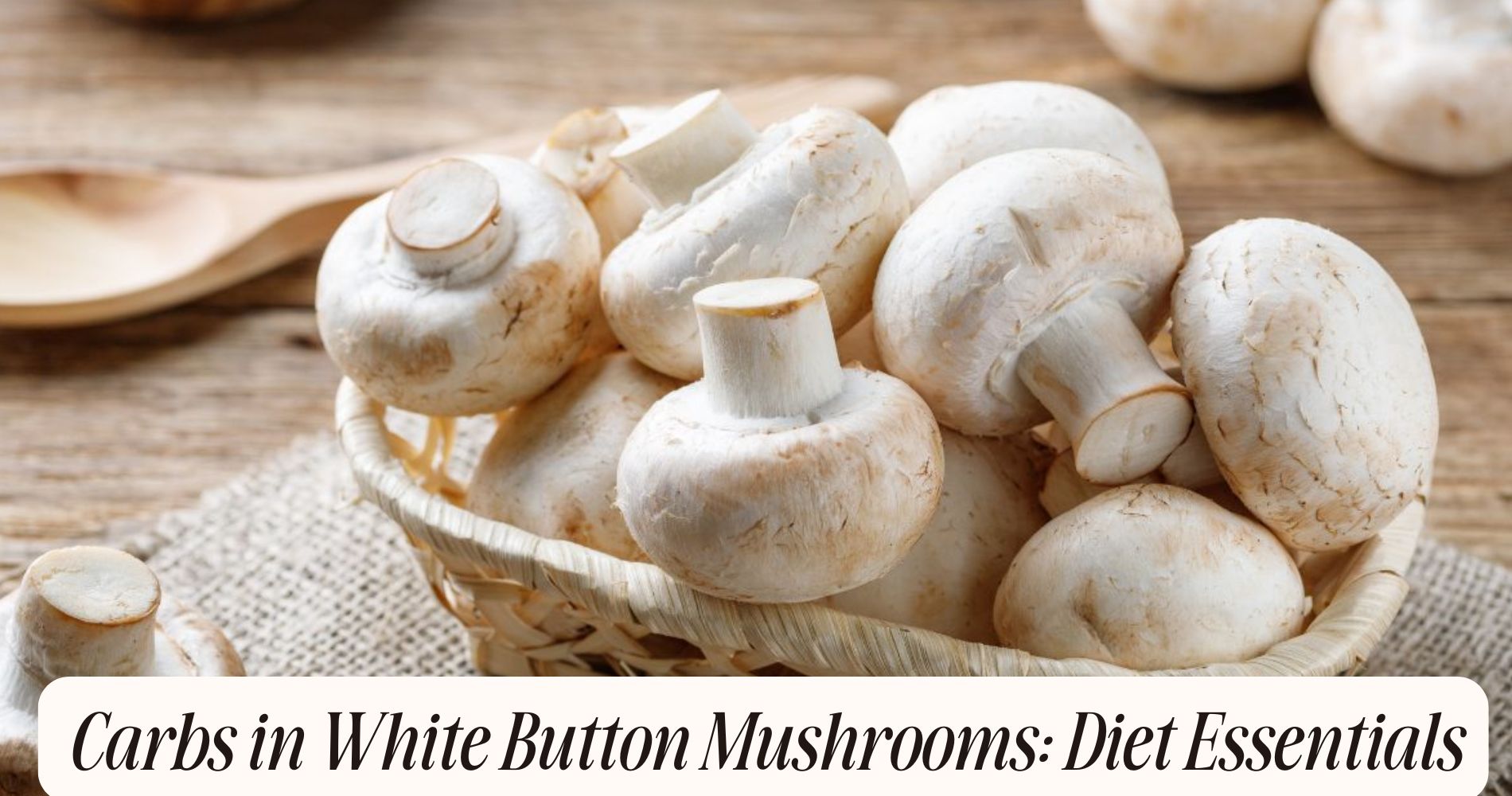
Calories in Oyster Mushrooms: Quick Nutritional Info
Overview of Oyster Mushrooms
Oyster mushrooms, with their delicate texture and mild flavor, aren't only a culinary delight but also a nutritional powerhouse. You'll find several oyster mushroom varieties, including the popular Pleurotus ostreatus, which is characterized by its fan-shaped cap and white to light gray color.
Another intriguing variety is the blue oyster mushroom, known for its striking bluish hue and robust flavor. These mushrooms thrive in diverse environments, making them accessible for both foragers and commercial growers.

In the kitchen, your culinary uses for oyster mushrooms are virtually limitless. They can be sautéed, grilled, or incorporated into soups and stews, enhancing dishes with their subtle umami flavor.
You might even consider using them as a meat substitute in vegetarian recipes, thanks to their meaty texture. Their ability to absorb flavors means they pair well with a variety of ingredients, from garlic and herbs to soy sauce and cream.
Moreover, oyster mushrooms are rich in antioxidants and essential nutrients, making them a valuable addition to your diet.
Caloric Content Breakdown
When diving into the caloric content of oyster mushrooms, you'll find that they're surprisingly low in calories while still providing a wealth of nutrients. These mushrooms have a caloric density of around 33 calories per 100 grams, making them an excellent choice for anyone looking to maintain a healthy diet without sacrificing flavor.
A typical serving size of oyster mushrooms is about 85 grams, which translates to approximately 28 calories. This low caloric content allows you to enjoy a generous portion without overwhelming your daily caloric intake.
In addition to being low in calories, oyster mushrooms offer a variety of vitamins, minerals, and antioxidants, enhancing their nutritional value. The low caloric density means you can incorporate them into various dishes—stir-fries, soups, or salads—without worrying about excess calories.
Their ability to absorb flavors makes them a versatile ingredient that complements both light and hearty meals. By understanding the caloric breakdown of oyster mushrooms, you can make informed choices that align with your nutritional goals while enjoying a delicious culinary experience.
Nutritional Profile Summary
When you look at the nutritional profile of oyster mushrooms, you'll find a balanced macronutrient breakdown that supports a healthy diet.
These mushrooms aren't just low in calories; they're also rich in essential vitamins and minerals that contribute to overall well-being.
Understanding their nutrient composition can help you make informed dietary choices.
Macronutrient Breakdown
Although often overlooked in the culinary world, oyster mushrooms provide a remarkable macronutrient profile that can enhance your diet. These mushrooms contain about 3 grams of protein per 100 grams, making them a valuable addition to your meals, especially if you're seeking plant-based protein sources.
The macronutrient ratios in oyster mushrooms are approximately 90% water, 5% carbohydrates, and 3% protein, with a small amount of fat. This low-calorie profile means that you can enjoy them guilt-free while adding flavor and texture to your dishes.

The carbohydrates found in oyster mushrooms are primarily complex, which can help maintain stable energy levels throughout the day. Additionally, their protein content, although modest, can complement other protein sources in your diet, particularly when combined with grains or legumes.
Incorporating oyster mushrooms into your meals can diversify your macronutrient intake and provide essential dietary fiber, promoting digestive health. Their unique flavor and versatility make them an ideal choice for various cooking methods, from sautéing to grilling.
Vitamin and Mineral Content
Oyster mushrooms not only boast a favorable macronutrient profile but also offer a wealth of vitamins and minerals that can boost your overall health.
These mushrooms are particularly rich in B vitamins, including riboflavin, niacin, and pantothenic acid. These B vitamins serve as essential vitamin sources, helping your body convert food into energy, and supporting brain function and red blood cell production.
In addition to B vitamins, oyster mushrooms provide a good amount of vitamin D, which is vital for calcium absorption and bone health. When exposed to sunlight, these mushrooms can enhance their vitamin D levels, making them a unique choice for vegetarians seeking this nutrient.
On the mineral front, oyster mushrooms are a solid source of minerals like selenium, copper, and potassium. Selenium acts as an antioxidant, while copper plays a role in iron metabolism and immune function. The potassium content can help regulate blood pressure and support heart health.
Incorporating oyster mushrooms into your diet can considerably contribute to your vitamin and mineral intake, promoting better mineral absorption and supporting overall well-being.
Health Benefits of Oyster Mushrooms
Oyster mushrooms are packed with essential nutrients that can greatly enhance your overall health.
They support your immune system with their rich array of vitamins and minerals, while also offering potent antioxidant properties that combat oxidative stress.
Incorporating these mushrooms into your diet can provide you with both nutritional benefits and a boost to your well-being.
Rich in Nutrients
Mushrooms, particularly oyster mushrooms, are nutritional powerhouses that offer numerous health benefits. Their impressive nutrient density makes them an excellent addition to your diet. Rich in essential vitamins and minerals, these mushrooms contain significant amounts of B vitamins, including niacin and riboflavin, which play a vital role in energy metabolism and overall health.
Oyster mushrooms are also an excellent source of antioxidants, such as ergothioneine, which help combat oxidative stress in your body. This contributes to various health advantages, including improved cellular health and reduced inflammation. Additionally, they provide dietary fiber, promoting gut health and aiding digestion.

These mushrooms are low in calories yet high in nutrients, making them a smart choice for those looking to maintain or lose weight without sacrificing essential nutrients. Their unique flavor and texture also make them a versatile ingredient in various dishes, allowing you to enjoy their health benefits while enhancing your meals.
Incorporating oyster mushrooms into your diet not only boosts your nutrient intake but also supports overall wellness, making them a valuable addition to any healthy eating plan.
Immune System Support
When it comes to supporting your immune system, including oyster mushrooms in your diet can be a beneficial choice. These mushrooms contain valuable compounds known as fungal polysaccharides, which have been shown to enhance your immune response.
Research indicates that these polysaccharides stimulate various immune cells, including macrophages and natural killer cells, helping your body fend off infections more effectively.
Oyster mushrooms are rich in beta-glucans, a type of fungal polysaccharide that plays a significant role in modulating the immune system. By promoting the activity of immune cells, beta-glucans can help your body respond more rapidly and efficiently to pathogens.
This can be particularly helpful during cold and flu season when your immune defenses need to be at their best.
Additionally, oyster mushrooms contain antioxidants and other nutrients that support overall health, further bolstering your immune system.
By incorporating these mushrooms into your meals, you not only enjoy their unique flavor and texture but also provide your body with essential tools to maintain a robust immune response.
Antioxidant Properties
Packed with beneficial compounds, oyster mushrooms are a remarkable source of antioxidants that can greatly contribute to your overall health.
These mushrooms contain various antioxidant compounds, such as ergothioneine and polyphenols, which help combat oxidative stress in your body. Oxidative stress can lead to cell damage and is linked to chronic diseases, including heart disease and cancer. By incorporating oyster mushrooms into your diet, you're not just adding flavor; you're potentially reducing your risk of these conditions.
Research indicates that the antioxidant properties in oyster mushrooms can improve your body's ability to fight inflammation and support cellular health.
Studies have shown that these mushrooms may enhance the activity of antioxidant enzymes, further bolstering your body's defenses.
Moreover, the health benefits don't stop at fighting oxidative stress. The antioxidants in oyster mushrooms can also contribute to better skin health, improved immune function, and overall vitality.
Comparison With Other Mushrooms
Oyster mushrooms' calorie content stands out when compared to other popular varieties, making them a remarkable choice for health-conscious eaters. With about 33 calories per 100 grams, oyster mushrooms provide a low-calorie option that fits well into a balanced diet.
In contrast, varieties like portobello and shiitake mushrooms average closer to 40-50 calories per 100 grams, which can add up in larger portions.
When you consider the culinary uses of these mushrooms, oyster mushrooms shine not only for their nutritional profile but also for their versatility. They can be sautéed, grilled, or added to soups and stir-fries, enhancing flavor without appreciably increasing calorie intake.

This makes them an excellent addition to weight-loss diets or meal planning focused on calorie control.
Moreover, oyster mushroom varieties, such as the king oyster and pink oyster, offer distinct flavors and textures while maintaining a low caloric count. Their adaptability in various dishes allows you to enjoy their benefits while keeping meals exciting and nutritious.
Cooking Methods and Calorie Impact
The way you prepare oyster mushrooms can considerably influence their calorie impact and overall nutritional value. Different cooking methods can either retain or diminish the nutritional benefits these mushrooms offer.
For instance, sautéing techniques can be an excellent choice. When you sauté oyster mushrooms in a small amount of oil, they absorb some fat, which adds calories but also enhances flavor. The key is to use healthy oils, like olive oil, and keep the portion minimal to avoid excessive calorie intake.
On the other hand, grilling methods can be a healthier option. Grilling oyster mushrooms requires little to no oil, which helps maintain their low-calorie profile. This method also brings out their natural umami flavor without the need for added fats.
Additionally, grilling can preserve more vitamins and nutrients compared to methods that involve boiling or deep-frying.
Ultimately, the cooking method you choose plays a significant role in how many calories you'll consume. By opting for lighter cooking techniques like sautéing with care or grilling, you can enjoy oyster mushrooms while keeping their calorie impact in check.
Incorporating Into Your Diet
Incorporating oyster mushrooms into your diet can be an excellent way to boost your nutrient intake while keeping calories in check. These mushrooms are low in calories but high in essential vitamins, minerals, and antioxidants, making them a smart choice for health-conscious eaters.
When you're meal planning, consider substituting oyster mushrooms for higher-calorie ingredients to create more balanced dishes. For instance, you can add them to stir-fries, soups, or salads, enhancing the flavor without noticeably increasing caloric content.
Portion control is vital when adding any new food to your diet. Though oyster mushrooms are nutritious, be mindful of how much you use. A standard serving is about one cup, which provides a good balance of nutrients while keeping calorie intake low.
By using oyster mushrooms in place of heavier ingredients, you can enjoy satisfying meals without overindulging.
Experimenting with different cooking methods, such as sautéing or grilling, can also add variety to your meals while maximizing flavor.
Common Recipes Featuring Oyster Mushrooms
Often found in various cuisines, oyster mushrooms can be the star ingredient in numerous delicious recipes. One popular option is the oyster mushroom stir fry, which showcases their unique flavor and texture.
By sautéing these mushrooms with vibrant vegetables like bell peppers and snap peas, you create a dish that's both visually appealing and nutrient-dense. Adding a splash of soy sauce or sesame oil enhances the umami profile, making it a balanced meal rich in vitamins and minerals.

Another delightful recipe is stuffed oyster mushrooms. You can hollow out the caps and fill them with a mixture of breadcrumbs, cheese, and herbs.
Baking them results in a savory appetizer that's perfect for gatherings. This dish not only highlights the mushrooms' natural taste but also allows for creativity in the filling, accommodating various dietary preferences.
Incorporating oyster mushrooms into your meals can elevate your culinary experiences while providing health benefits. Their versatility makes them an excellent choice for both weeknight dinners and special occasions.
Storage and Freshness Tips
Properly storing oyster mushrooms is essential to maintaining their freshness and flavor for as long as possible. The right storage techniques can considerably extend their shelf life, so it's worth knowing how to treat them.
Start by keeping your mushrooms in a paper bag rather than plastic. Paper allows for airflow, preventing moisture buildup that can lead to spoilage. If you've bought them pre-packaged, transfer them to a breathable container as soon as possible.
When it comes to temperature, store oyster mushrooms in the refrigerator, ideally in the crisper drawer, where humidity levels are more controlled. This environment helps to maintain their texture and flavor.
To assess freshness indicators, look for firm, plump mushrooms without any signs of sliminess or discoloration. Fresh oyster mushrooms should have a pleasant earthy smell.
If they start to look wrinkled or develop dark spots, it's time to use them or discard them. Remember, the goal is to keep them dry and cool, as this will help you enjoy their unique taste and nutritional benefits for longer.
Enjoy Mushroom Benefits Without Counting Calories: Well Gummies SUPER MUSHROOM GUMMIES
Curious about calories in oyster mushrooms and their nutritional value? Well Gummies SUPER MUSHROOM GUMMIES offer a convenient way to harness the health benefits of ten functional mushrooms without the need for meal prep. These vegan gummies are low in calories and packed with nutrients, supporting brain health, immune function, and energy balance in a simple gum chew form.
With a fresh wild berry flavor, they’re as delightful as your favorite candy—minus the jitters or crashes. Make wellness easy and delicious with Well Gummies today!
Frequently Asked Questions
Are Oyster Mushrooms Suitable for Gluten-Free Diets?
Yes, oyster mushrooms are suitable for gluten-free diets. They're naturally gluten-free, providing a nutritious option for those avoiding gluten. Incorporating them into your meals can enhance flavor and add valuable nutrients without compromising your dietary needs.
Can Oyster Mushrooms Be Eaten Raw?
You can eat raw oyster mushrooms, but be cautious. While they offer health benefits, cooking enhances nutrient absorption and reduces potential digestive discomfort. Always verify they're fresh to maximize their flavor and nutritional value.
What Allergens Are Associated With Oyster Mushrooms?
Oyster mushroom allergies are rare, but they can occur. If you're sensitive, you might experience allergic reactions like skin rashes or gastrointestinal issues. Always consult a healthcare professional if you suspect an allergy to mushrooms.
How Do Oyster Mushrooms Compare in Taste to Other Mushrooms?
Oyster mushrooms have a mild, slightly sweet flavor profile, distinguishing them from earthier varieties like shiitake. Their unique taste enhances various culinary uses, including stir-fries, soups, and sauces, making them versatile in diverse dishes.
Are There Any Known Side Effects of Consuming Oyster Mushrooms?
While oyster mushrooms offer numerous health benefits, some people may experience digestive issues or allergic reactions. When cooking them, be mindful of your body's response and choose methods that enhance their flavors without overwhelming your system.
Conclusion
Incorporating oyster mushrooms into your diet can be a flavorful and nutritious choice. With their low caloric content and rich nutritional profile, they offer a variety of health benefits, including potential anti-inflammatory properties. By exploring various cooking methods and recipes, you can easily enjoy these versatile mushrooms. Remember to store them properly to maintain their freshness. Overall, oyster mushrooms not only enhance your meals but also contribute positively to your health.




